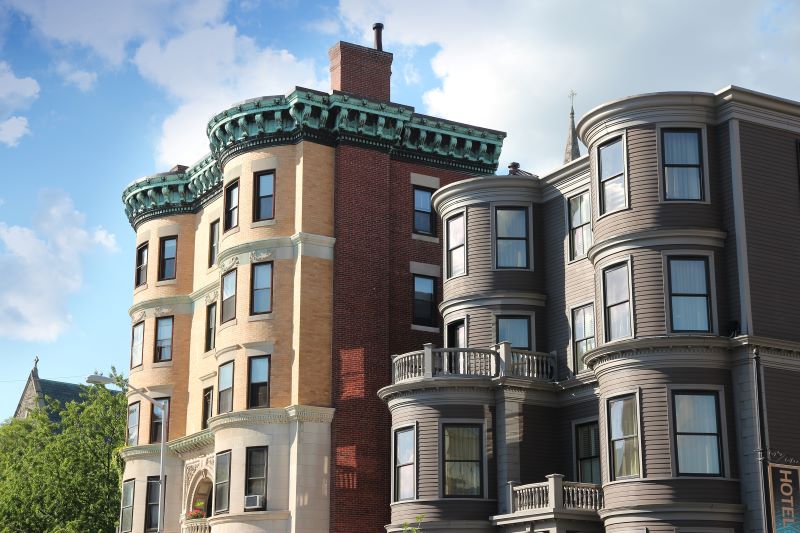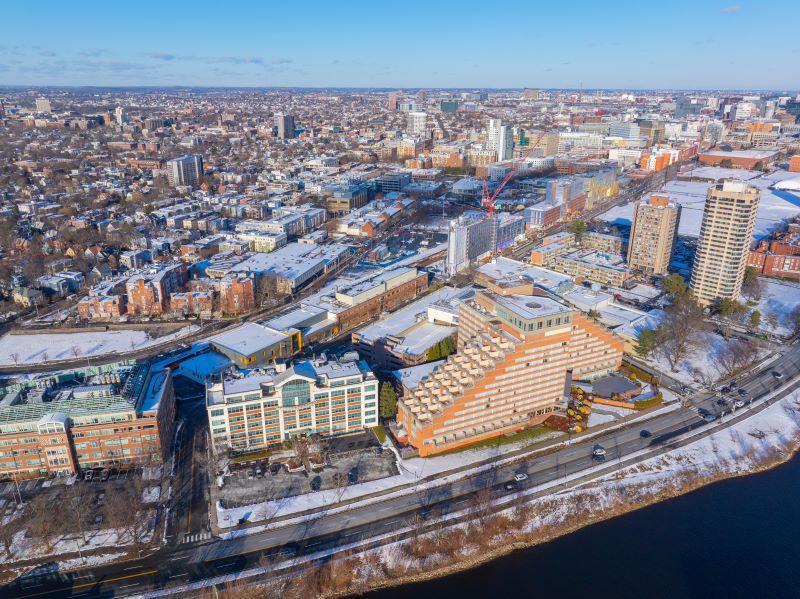
Picture this: On February 11, 2025, Cambridge, Massachusetts, basically said, “Single-family zoning? We’re done with that.” With an 8-1 vote, the city council decided to let multifamily buildings—think four stories as standard, six if the lot’s big enough—pop up anywhere in town. No more “only one house per lot” rules. Councilors Burhan Azeem and Sumbul Siddiqui led the charge, and now people are throwing around phrases like “Paris vibes” to describe what Cambridge might become. So, what’s the deal, and why should anyone in Greater Boston care?

Why This Hits Home
If you’ve ever tried renting an apartment in Cambridge, you know the drill: $2,900 for a one-bedroom, and that’s if you’re lucky—new places can cost even more. It’s brutal out there, and it’s not just a Cambridge problem. All over Greater Boston, housing prices are through the roof because there just aren’t enough homes to go around. Teachers, firefighters, young families— some are getting priced out of the places they love. The state says we need 222,000 new units by 2040 to keep up, but we’ve been stuck in the mud for years thanks to old-school zoning and folks saying “not in my backyard.”
Cambridge is swinging for the fences here. Under the old rules, they were on track for maybe 350 new homes by 2040—basically a drop in the bucket. Cambridge will never see lower rents and affordable purchases with that type of low supply. Clearly it is a zoning issue and also politicians adding too many rules and requirements to development deals. There is still the lingering issue of non-business oriented people adding to many affordability and green requirements to development which shot the price to develop to the moon that led to housing production coming to a standstill.
Now? With at least some relief in terms of upsizing on lots, they’re talking over 4,800 units. That’s huge! From the cozy streets of East Cambridge to the tree-lined vibes of Strawberry Hill, multifamily housing is fair game. The hope? More homes mean less pressure on rents and prices. Overall this is a good start for zoning – but we haven’t gone far enough – removing mandated affordability requirements and some of the green initiatives could potentially create a wave of housing that could make it more affordable for everyone.

How This Could Shake Up Greater Boston
Cambridge isn’t some island—it’s a big deal in Greater Boston, with MIT, Harvard, and all the tech and biotech buzz. So when it makes a move like this, the ripples could hit far and wide:
Suburbs Might Jump In
Places like Somerville, Newton, and Brookline, all hooked up to the T and facing their own housing crunches, might look at Cambridge and think, “Hey, we could do that.” If this works—showing you can add density without turning into a concrete jungle—it could nudge other towns to loosen up their zoning too. More homes near transit? Yes, please.
Rents Could Chill Out
More apartments in Cambridge would most likely take the edge off its crazy rental market. And if that happens, it could ease things in Boston and beyond. Minneapolis tried this back in 2019—ditching single-family zoning—and rents there actually calmed down a bit. Plus, Cambridge’s rules mean bigger projects have to include affordable units, so we’re talking hundreds of homes regular folks can actually afford.
A Nudge for the State
Governor Maura Healey wants those 222,000 units statewide, but local rules keep tripping us up. Cambridge’s big swing fits right into the MBTA Communities law, pushing towns near transit to allow more housing. If this pays off, it might light a fire under the state to crack down on zoning holdouts across Massachusetts.

The Good Stuff—and the Messy Stuff
For builders, this is like Christmas morning. Easier permitting, no parking minimums (thanks to a 2023 rule), and a green light for townhouses, four-plexes, even mid-rise buildings—it’s a chance to rethink Cambridge from the ground up. Affordable housing groups are already in on it too, using the Affordable Housing Overlay to dream bigger—up to 15 stories for fully affordable projects. What housing advocacy groups have to key in on is understanding that adding too many mandated affordable units into a development deal essentially makes the deal impossible to pencil and we end up with a lot of permits going nowhere. Getting permits is one thing – delivering product in a high interest rate environment is a whole another ball of wax. Hopefully with reestablishing a coherent national energy solutions on the horizon – we could see energy costs come down in 12-18 months. When that occurs – interest rates could drop and we could see a return to development.
But not everyone’s cheering. Some locals are not happy about the changes, specifically longtime residents that have lived in Cambridge for 40+ years. Six-story buildings blocking the sun? Trees coming down? Roads getting jammed? They’ve got a point—it could get messy. And then there’s the fear that without serious funding, we’ll just end up with fancy condos instead of homes for regular people. The Cambridge Citizens Coalition’s even calling it a “developer giveaway.” Ouch.

So, What Happens Now?
Don’t expect a new skyline tomorrow. Councilor Siddiqui’s been real about it—this could take years, maybe decades, to fully play out. Building costs, loans, and the market will call the shots on timing. But there’s momentum: eight affordable projects (727 units) are already rolling, with more in the pipeline. And pushing affordable housing into spots like West Cambridge? That’s a win for fairness.
For Greater Boston, this is a live experiment. If Cambridge pulls it off—more homes, cheaper rents, a playbook for growth—it could be the push we need to rethink housing region-wide. If it flops, like if the sewers can’t handle it or it’s all luxury towers because of sky high costs to build, the naysayers will have a field day. Either way, housing’s a big deal around here—it touches everything from jobs to who gets to call this place home.
What’s your take? Is Cambridge onto something big, or are they biting off more than they can chew? Drop your thoughts below—I’d love to hear what you think!

Thomas Macdonald
Published March 6, 2025










